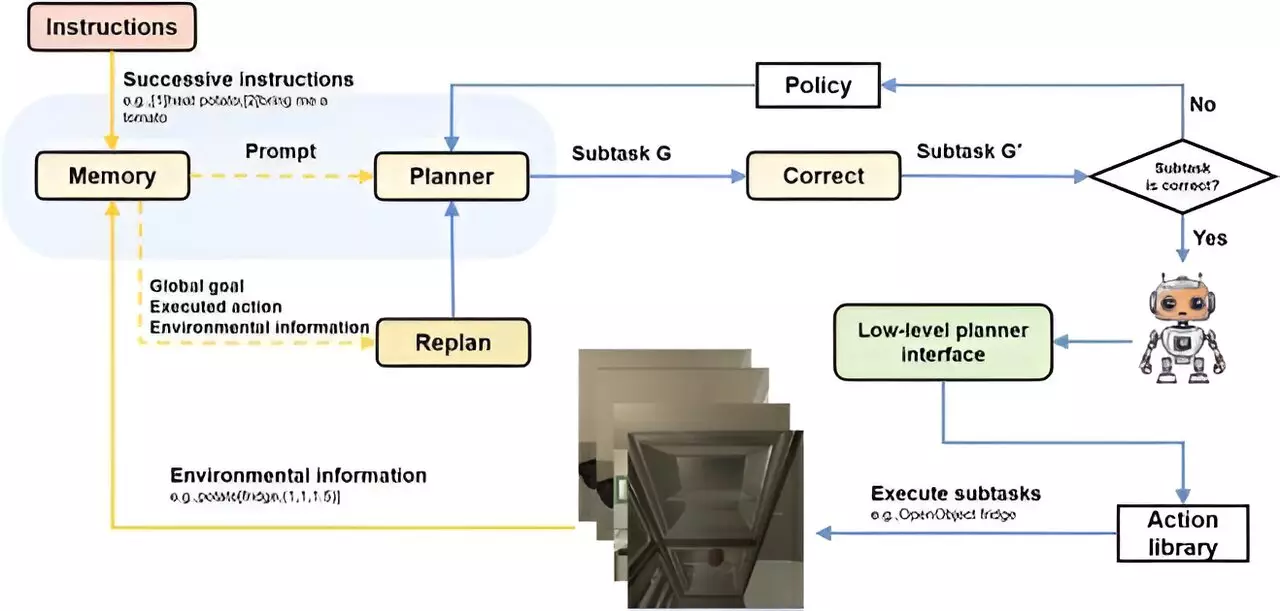The field of robotics is witnessing a groundbreaking development with the introduction of the “Correction and Planning with Memory Integration” (CPMI) framework by researchers from Shanghai University. This innovative framework utilizes large language models (LLMs) to enhance the way robots interpret and carry out complex tasks. Unlike traditional methods that relied on explicit programming and extensive data, the CPMI framework empowers robots to adapt and learn in real-time, thanks to the integration of memory and planning capabilities within LLMs.
The standout feature of the CPMI framework lies in its ability to break down intricate instructions into actionable steps, allowing robots to plan their actions more effectively and adjust their course in response to obstacles or errors. By leveraging LLMs as central decision-making elements, robots equipped with the CPMI framework can navigate tasks with greater efficiency and adaptability. This dynamic approach represents a significant departure from conventional robotic programming methods.
A key component of the CPMI framework is its memory module, which enables robots to remember and learn from previous tasks. This human-like memory and experience mimicry contribute to improved task efficiency over time and rapid adaptation to new situations. The research team at Shanghai University validated the effectiveness of their framework through testing in the ALFRED simulation environment, where it outperformed existing models in scenarios with limited learning examples.
The implications of the CPMI framework extend across various industries, from domestic robots enhancing household tasks to industrial robots navigating complex manufacturing processes. As LLMs continue to evolve, the capabilities of CPMI-equipped robots are poised to expand, ushering in a new era of autonomous and intelligent machines. The researchers at Shanghai University are enthusiastic about the transformative potential of their technology and are committed to refining the framework further.
The introduction of the CPMI framework not only raises the bar for AI in robotics but also paves the way for the integration of advanced AI technologies into everyday life. As frameworks like CPMI continue to evolve, the dream of having intelligent, adaptable robots capable of performing a diverse range of tasks independently is becoming increasingly feasible. The future holds promise for a wide array of applications that rely on complex, real-time decision-making.
The CPMI framework represents a significant leap forward in the field of robotics, showcasing the potential of integrating memory and planning with AI. With ongoing advancements and refinements, the horizon looks bright for a future where intelligent robots play a pivotal role in various aspects of our lives. The journey towards achieving this vision is well underway, driven by the dedication and innovation of researchers pushing the boundaries of AI and robotics.


Leave a Reply